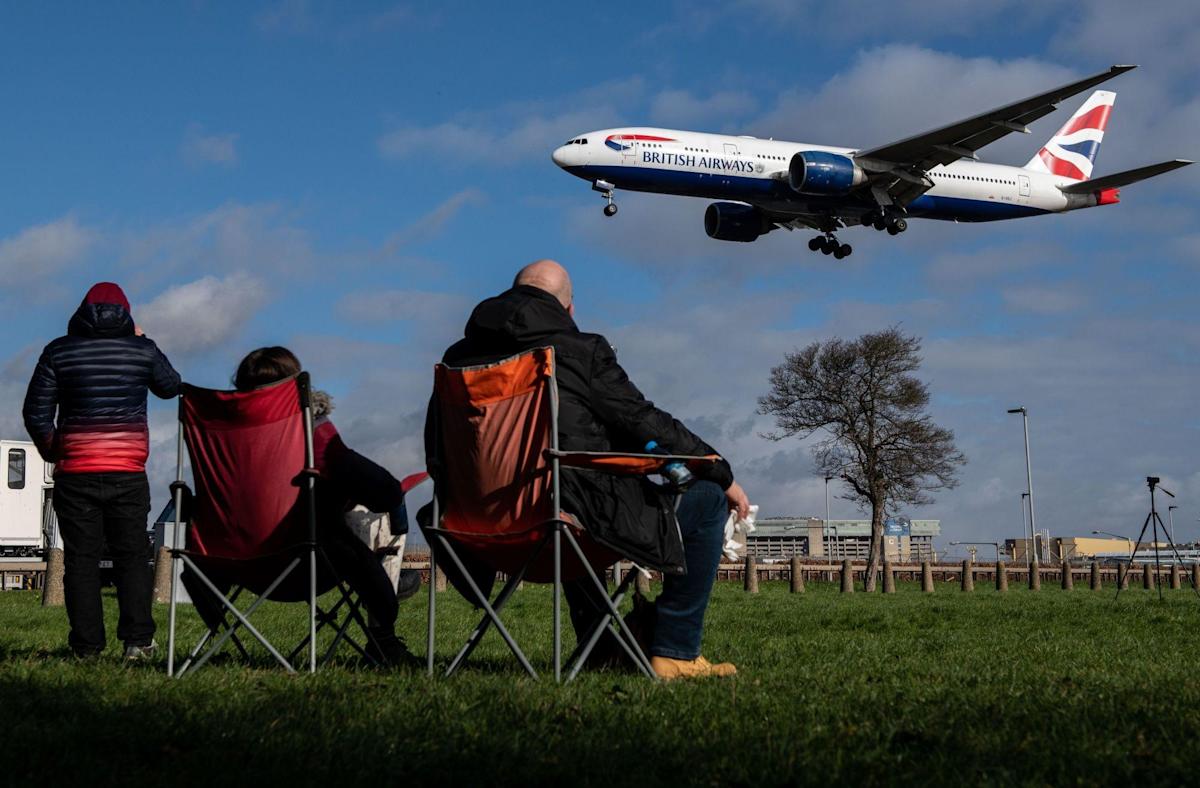
(Bloomberg) — Britain set out plans to bolster airlines and airports roiled by the coronavirus pandemic, while emphasizing that growth must be in line with steps to slash carbon emissions and promising a charter for traveler rights.
Most Read from Bloomberg
The ten-point strategy revealed by the government Thursday lists ambitions including sustainable growth in both passengers and cargo and the addition of airport capacity where justified, while committing to net zero emissions from UK aviation by 2050 and improvements in the “customer experience.”
The Flightpath to the Future plan also targets job creation and a skills upgrade to accommodate technologies resulting from the drive toward decarbonization, including drones, flying taxis and electric planes, and stresses that benefits must be spread across the country as part of a so-called leveling-up agenda.
London Heathrow airport, Europe’s busiest prior to the pandemic, welcomed the proposals and opportunities for closer contact with ministers, while saying the government must “bring pace to the policies” in order to fulfill its ambitions.
Planemaker Airbus SE separately provided a boost for Britain’s aerospace manufacturing sector, saying it will open a hydrogen-technology center in the country to help develop a zero-emission plane by the middle of next decade.
The government’s aviation roadmap is partly an attempt to restore relations with a sector that complained of being cut adrift during the pandemic, as state aid fell short of the support seen elsewhere despite some of the most stringent travel curbs anywhere. It’s also aimed at assuaging consumer concerns after thousands waited months for compensation when flights were canceled.
Aviation Minister Robert Courts said that while the pandemic posed an “existential threat” to aviation, it also presents a chance “to build back better than ever before” now that the recovery has begun.
The plan, first mooted in 2020, includes two central measures, one aimed at industry and the other at the public.
Key Initiatives:
-
Aviation Council — the new body, uniting government ministers and officials with airline and airport representatives, will seek to “bring the aviation sector together to learn the lessons of the pandemic and grow back sustainably,” the Department for Transport says.
-
Aviation Passenger Charter — to be developed by industry and customer groups for launch later this year, and touted as a “one-stop guide for consumers informing them of their rights and what they can reasonably expect of the aviation industry when flying.”
Industry lobby groups welcomed the blueprint, but said that direct government support will be critical.
The Airport Operators Association said ministers should “not only provide policy certainty to achieve a UK-wide recovery but also back their ambitions with funding.” Measures could include financing for specific routes, a “green airport fund” for investment in a sustainable recovery, and steps to exploit Brexit-related openings such as duty-free shopping for arriving passengers.
It said that U.K. airports have emerged in a worse position than many international competitors that benefited from more generous support.
Airlines UK, which represents carriers including British Airways and EasyJet Plc, said there needs to be “a laser-like focus from government on the levers it can pull to make the UK a truly competitive global aviation hub.”
The investment in hydrogen from Airbus will see the establishment of a research center in Filton, England, where the Toulouse-based firm already designs jetliner wings. The site will focus on developing cost-competitive fuel, complementing facilities in Madrid, Nantes in France and the German cities of Stade and Bremen.
Airbus Chief Executive Officer Guillaume Faury, speaking in London, said that Britain remains “the best place in the world to make wings” and that a major part of that “is down to government support in the sector.”
(Updates with Heathrow response in fourth paragraph, Airbus investment in UK from fifth)
Most Read from Bloomberg Businessweek
©2022 Bloomberg L.P.




